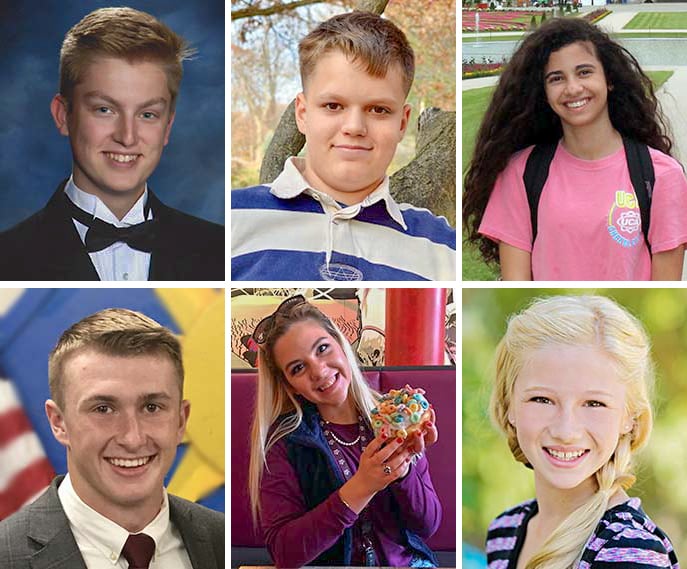Editor’s note: Military Times has profiled the winners of each service’s Operation Homefront Military Child of the Year award for 2018. All of the winners will be honored Thursday night in Washington, D.C., and will receive $10,000 and other prizes; for more about the award and for links to other honorees, click here.
After Roark Corson lost two friends to suicide within three years, he decided to take action, volunteering with the National Alliance on Mental Illness and the I Need a LightHouse organization.
He helps raise funds for NAMI, is an advocate for youth with mental illness, participates in teen conferences and is a featured speaker at events that help raise awareness and help eliminate the stigma and discrimination that surrounds mental illness. For that work, he was awarded the 2018 Helen P. Shropshire Human Rights Youth Award by the Virginia Beach Human Rights Commission.
“I’m glad for the opportunity to be able to draw more attention to youth mental illness with this award,” said Roark, 17, who is a senior at Ocean Lakes High School in Virginia Beach, Virginia.
His advice to other military kids is to get involved in their community. “It’s important to give back to the community and it’s a very healthy thing to do,” he said. Community service efforts “are very personally rewarding, but they’re also a great way to meet nice people” and make connections, he said.
He’s moved seven times in his life. His father, Caleb, retired last June as a captain after 30 years in the Coast Guard. Caleb Corson credits his wife, Tyler, for her large influence on Roark and his younger brother while he was at sea for many of those years.
While his work in mental health advocacy might be the most important accomplishment to Roark, it’s one of many. He became an Eagle Scout at age 13. He’s a National Merit Scholarship finalist, scored a perfect 36 on the ACT, has a weighted grade-point average of 4.512, is an AP Scholar with Distinction, won first place in the 2017 regional Tidewater Robotics and Maker Entrepreneur Challenge, and was elected captain of his high school crew team his senior year. He won first place in the environmental science category in the regional science fair his junior year, and he’s written a scientific article about the experiment which has been accepted for publication in the Journal of Emerging Investigators.

“It’s important for all adults, parents included, to recognize that military kids may have specific needs and are independent, and shouldn’t be hindered or punished in their education or their social life or anything else just because they are military,” Roark said. He advises military parents to “advocate for your kid, but also talk to them, understand what they need, understand what they want to do, and help them do those things.”
Military families need to know about policies, laws and programs that can help their children, such as the Interstate Compact on Educational Opportunity for Military Children, he said. It helped him when his family moved from northern Virginia to South Carolina. Because of the compact and his parents’ and school officials’ involvement, he avoided being placed in a course that would have essentially required him to repeat a year of math.
Roark counts dependability as his most important character trait. “If someone asks me to do something, I’ll do it. If I have trouble doing it, or if I run into roadblocks, I will let the person know so they can help me or they can ask somebody else to do it. But to me it’s very important that they can rely on me,” he said.
“In part that comes from my father always telling me, ‘Your word is your bond.’”
Karen has covered military families, quality of life and consumer issues for Military Times for more than 30 years, and is co-author of a chapter on media coverage of military families in the book "A Battle Plan for Supporting Military Families." She previously worked for newspapers in Guam, Norfolk, Jacksonville, Fla., and Athens, Ga.




